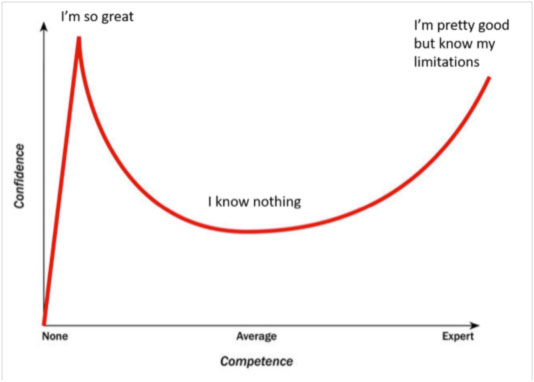Is Imposter Syndrome a good thing?
Author: Lindsay Macdonald
Have you heard of the expression “imposter syndrome”? For me it is that uncomfortable nagging question “who am I to be advising and guiding an organization’s change effort?”
As a change practitioner with nearly 20 years of experience, each time I start a new role, join a new organization, or new initiative, that question resurfaces for me. It leaves me questioning whether I am really capable of fulfilling the role that I have been given and worrying that at any moment people will start to question why I am there and what value I bring. And then I remember to take a deep breath because I know I am not the only one who feels that way….
Pauline Clance originally identified the syndrome among high-achieving professional women (1), but more recent research has documented these feelings of inadequacy among men and women, in many professional settings, and among multiple ethnic and racial groups.
A 2019 article (2) which reviewed studies of imposter syndrome found that many people experience symptoms for a limited time, such as in the first few weeks of a new job. For others, the experience can be lifelong (3). Fortunately for me, my relationship with imposter syndrome most frequently arises at the beginning of a new endeavour, and I am usually able to move past the feeling for the most part, though it is always lingering in the background somewhere.
I was recently having a discussion with someone I would deem as an expert in their field who told me they share this same nagging feeling of being an imposter. The discussion led us to the view that feeling like an imposter is actually a good way to avoid falling prey to the initial stage of the Dunning-Kruger effect (4), which seems to be the opposite of imposter syndrome.

Moving forward I am going to view that question as a positive thing, a way to recognize my limitations and embrace the opportunities it presents me. Imposter syndrome means I can honestly and routinely question my knowledge base and the conclusions I reach. It reminds me that I continue to be a life-long learner and allows me to continue to be curious. I may not have the answer to every question, but I know a process that will help me figure it out. I know how to find the right people to get the information, advice or expertise from. I know how to use those processes, conversations and information to work with an organization to move a change forward.
So, while I may feel like an imposter in that moment as I start a new role, join a new organization or take on a new initiative I know that is a good thing. I have experience that helps prevent me becoming complacent, keeps me humble and allows me to be curious and to continually improve my practice.
I would be interested to hear if you have ever felt the way I do and how you have turned that feeling into a positive experience, allowing you to drop the self-judgement and embrace the opportunities imposter syndrome presents you.
Connect with the author Lindsay Macdonald via LinkedIn.
References:
(1) Clance PR, Imes SA. The imposter phenomenon in high achieving women: Dynamics and therapeutic intervention. Psychother Theory Res Pract 1978;15(3):241-7.
(2) Bravata, D.M., Watts, S.A., Keefer, A.L. et al. Prevalence, Predictors, and Treatment of Impostor Syndrome: a Systematic Review. J GEN INTERN MED 35, 1252–1275 (2020).
(3) Leonard, Jayne. How to handle impostor syndrome 2020 https://www.medicalnewstoday.com/articles/321730
(4) J. Kruger, D. Dunning. Unskilled and unaware of it: how difficulties in recognizing one’s own incompetence lead to inflated self-assessments. Journal of personality and social psychology, 1999

